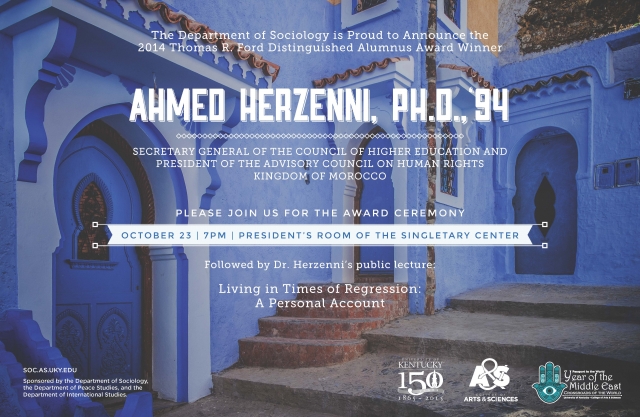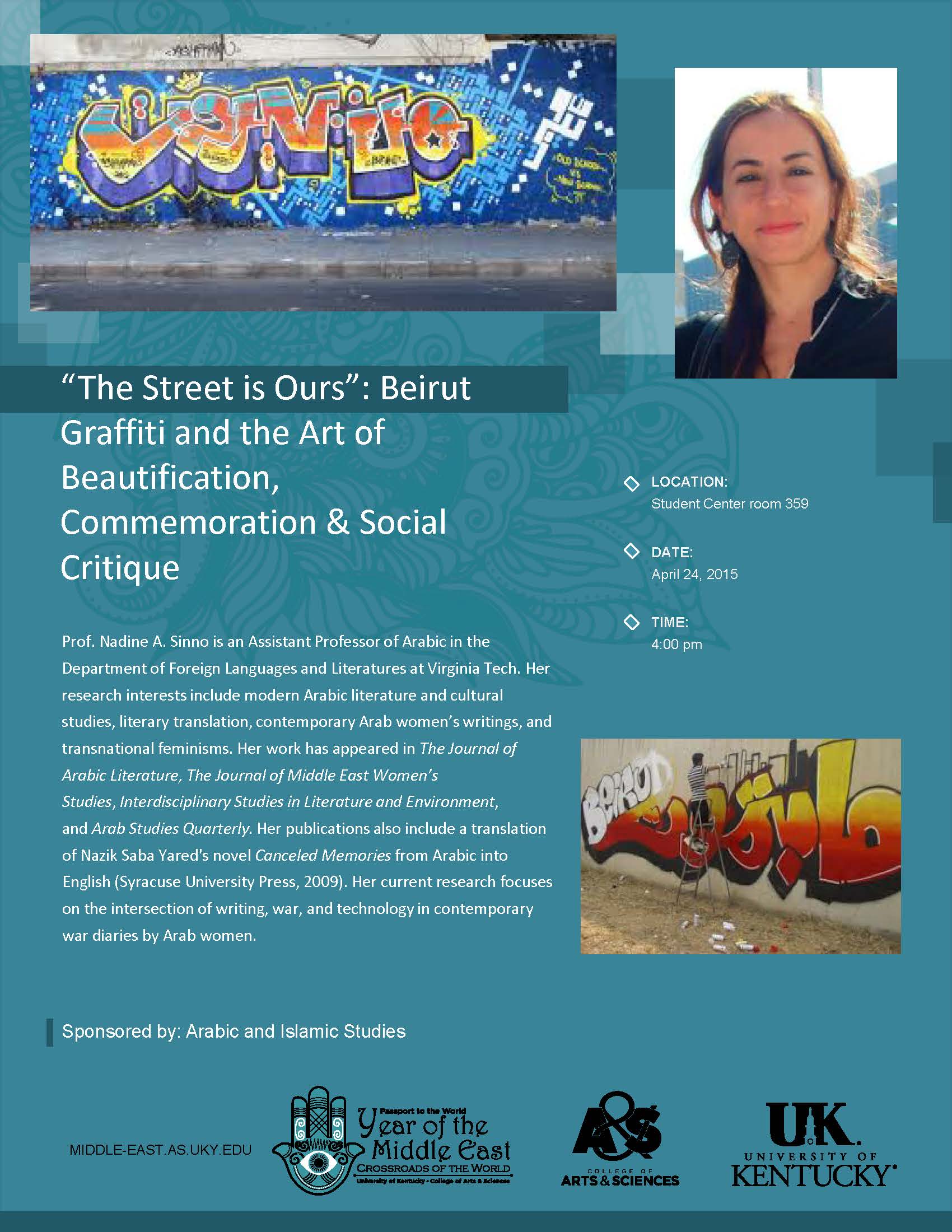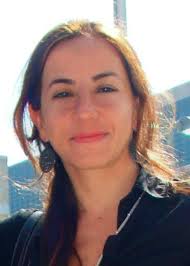Year of the Middle East
Living in Times of Regression: A Personal Account

"The Israelite Samaritan Today: Past, Present and Looking to the Future."
Today’s Israelite Samaritans are ‘living history’, as we respect and observe our way of life and heritage. Through our sometimes difficult past, we have learned to coexist harmoniously with our neighbours, and we are a bridge for peace (gesher leshalom) between all peoples . We are the root of the Abrahamic religions in the region, including Samaritanism, Judaism, Christianity, Islam, and the Druze and Bahai faiths. Though rooted deeply in the past, we are a vibrant modern community with contemporary enterprises and interests. In March 1919 there were only 141 individuals, in Nablus and Jaffa. By September 2014, the Israelite Samaritan Community numbered 770 souls, divided into four households, all in the Holy Land. This talk will explore the past, present, and future of the Israelite Samaritan people.
Benny recently published "The Israelite Samaritan Version of the Torah: First English Translation Compared with the Masoretic Version" with Eerdmans Publishing.
"The Israelite Samaritan Today: Past, Present and Looking to the Future."
Today’s Israelite Samaritans are ‘living history’, as we respect and observe our way of life and heritage. Through our sometimes difficult past, we have learned to coexist harmoniously with our neighbours, and we are a bridge for peace (gesher leshalom) between all peoples . We are the root of the Abrahamic religions in the region, including Samaritanism, Judaism, Christianity, Islam, and the Druze and Bahai faiths. Though rooted deeply in the past, we are a vibrant modern community with contemporary enterprises and interests. In March 1919 there were only 141 individuals, in Nablus and Jaffa. By September 2014, the Israelite Samaritan Community numbered 770 souls, divided into four households, all in the Holy Land. This talk will explore the past, present, and future of the Israelite Samaritan people.
Benny recently published "The Israelite Samaritan Version of the Torah: First English Translation Compared with the Masoretic Version" with Eerdmans Publishing.
"The Israelite Samaritan Today: Past, Present and Looking to the Future."
Today’s Israelite Samaritans are ‘living history’, as we respect and observe our way of life and heritage. Through our sometimes difficult past, we have learned to coexist harmoniously with our neighbours, and we are a bridge for peace (gesher leshalom) between all peoples . We are the root of the Abrahamic religions in the region, including Samaritanism, Judaism, Christianity, Islam, and the Druze and Bahai faiths. Though rooted deeply in the past, we are a vibrant modern community with contemporary enterprises and interests. In March 1919 there were only 141 individuals, in Nablus and Jaffa. By September 2014, the Israelite Samaritan Community numbered 770 souls, divided into four households, all in the Holy Land. This talk will explore the past, present, and future of the Israelite Samaritan people.
Benny recently published "The Israelite Samaritan Version of the Torah: First English Translation Compared with the Masoretic Version" with Eerdmans Publishing.
"Sleepless Nights/Wasted Time: Seeking Islam in Egypt's Hollywood"
Professor Joel Gordon will explore the depiction of ‘normative’ religious practices and personal expressions of religious identity in recent Egyptian movies with a particular focus is on Egyptian youth. Whereas in the past signs of piety had been restricted to either ‘traditional’ Egyptians – often in comic fashion – or political extremists, a few recent films have dared to depict ‘normal’ veiled women and bearded men and even a social environment in which questions of piety, morality and proper behavior dominate the discussions, concerns and conflicts between young Egyptians. These films may point to a growing willingness by film artists to honestly explore social trends that have been taboo, especially as Egypt enters a new political era.
Prof. Joel Gordon: Professor of History and Director of Middle East Studies, University of Arkansas; Specialist in modern Egyptian history and Arab popular culture; Author of Nasser' Blessed Movement, Revolutionary Melodrama, and Nasser: Hero of the Arab Nation
"Sleepless Nights/Wasted Time: Seeking Islam in Egypt's Hollywood"
Professor Joel Gordon will explore the depiction of ‘normative’ religious practices and personal expressions of religious identity in recent Egyptian movies with a particular focus is on Egyptian youth. Whereas in the past signs of piety had been restricted to either ‘traditional’ Egyptians – often in comic fashion – or political extremists, a few recent films have dared to depict ‘normal’ veiled women and bearded men and even a social environment in which questions of piety, morality and proper behavior dominate the discussions, concerns and conflicts between young Egyptians. These films may point to a growing willingness by film artists to honestly explore social trends that have been taboo, especially as Egypt enters a new political era.
Prof. Joel Gordon: Professor of History and Director of Middle East Studies, University of Arkansas; Specialist in modern Egyptian history and Arab popular culture; Author of Nasser' Blessed Movement, Revolutionary Melodrama, and Nasser: Hero of the Arab Nation
"Sleepless Nights/Wasted Time: Seeking Islam in Egypt's Hollywood"
Professor Joel Gordon will explore the depiction of ‘normative’ religious practices and personal expressions of religious identity in recent Egyptian movies with a particular focus is on Egyptian youth. Whereas in the past signs of piety had been restricted to either ‘traditional’ Egyptians – often in comic fashion – or political extremists, a few recent films have dared to depict ‘normal’ veiled women and bearded men and even a social environment in which questions of piety, morality and proper behavior dominate the discussions, concerns and conflicts between young Egyptians. These films may point to a growing willingness by film artists to honestly explore social trends that have been taboo, especially as Egypt enters a new political era.
Prof. Joel Gordon: Professor of History and Director of Middle East Studies, University of Arkansas; Specialist in modern Egyptian history and Arab popular culture; Author of Nasser' Blessed Movement, Revolutionary Melodrama, and Nasser: Hero of the Arab Nation


